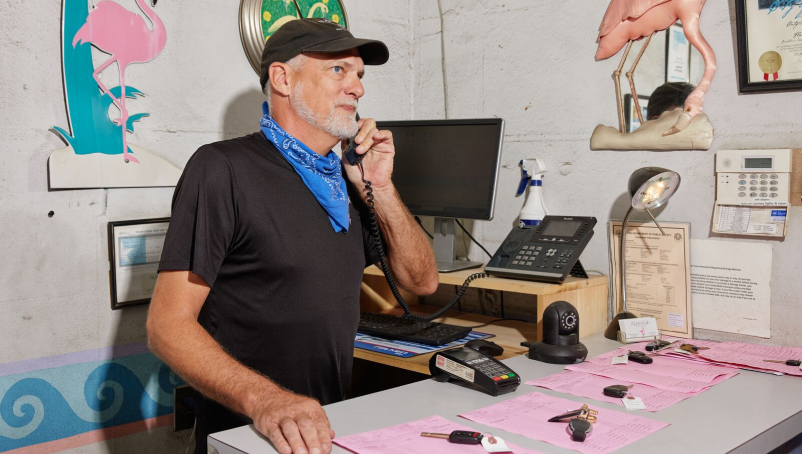The road to a successful small business is paved with equal parts elbow grease and smart financial decisions. And one key aspect of smart financial management is establishing good business credit.
Knowing how to establish business credit is easier than you think, and is important for your company’s long-term financial success. In this article, we'll guide you through setting up business credit for the first time with straightforward tips and strategies to set you on the path to a strong credit profile.
What is business credit, and why you need it
Business credit measures a company’s creditworthiness and financial health. Lenders, suppliers, and other partners use it to determine the risk of working with the company. It isn't the same as personal credit — business credit focuses on the business's creditworthiness, not the individual business owner.
It’s essential to establish good business credit to secure financing options when you need it. It increases the likelihood of financing approval and can open the door to negotiating better payment terms with suppliers and vendors, improving cash flow and boosting profitability.
How to build business credit from scratch
Good business credit is crucial if you need funding for your small business, better payment terms or improved financial standing. Here’s a step-by-step process on how to establish business credit for the first time, with practical tips and strategies to help you build a solid credit profile.
1. Register your business and request an EIN
Registering your business and obtaining an Employer Identification Number (EIN) is the first step towards building business credit. It creates a separate entity for your business, allowing you to establish credit and assets independent of your personal finances.
You can apply for an EIN from the IRS. It’s free, and you’ll use this number when applying for loans, credit lines, and other financing opportunities.
2. Obtain a DUNS number
A DUNS number is a nine-digit identifier for businesses issued by Dun & Bradstreet, a major credit reporting agency. You need one for each physical location of your business. The good news is you can get a DUNS number for free from the Dun & Bradstreet website.
Including your DUNS number on credit applications and other financial documents can help lenders and suppliers verify your business's creditworthiness.
3. Use accounts that report to credit bureaus
Using accounts that report to credit bureaus is like planting seeds for a healthy financial future for your small business. However, you’ll want to confirm whether the lender or creditor will report to credit bureaus — not all accounts do.
Your company's financial goals should also be considered when choosing accounts. For example, a credit card with a high limit may be tempting, but it could also lead to high balances and interest charges. Look for accounts with low fees and reasonable interest rates. Make timely payments to sow the seeds for long-term business success.
4. Apply for a business credit card
A credit card is one of the best ways to build business credit. It provides a convenient and flexible financing option and can help you easily separate business expenses from personal expenses.
When applying for a business credit card, gather documentation that proves your business’s income and creditworthiness. Lenders typically ask for tax returns, bank statements, and financial statements.
5. Establish business trade lines with suppliers
Some companies help build business credit through trade lines. A trade credit lets you pay suppliers for inventory several days or weeks after you get it, and standard terms might be Net 15, Net 30, 60, or 90. Besides boosting business credit, it also helps you manage cash flow.
Many vendors offer tradelines, even small vendors like your water or office supplies distributor. If they don’t report to credit bureaus, you can list them as a trade reference when applying for financing.
6. Make early payments
Your payment history is one of the biggest factors in building your business credit, accounting for 35% of your credit score. When you pay your bills on time or even ahead of schedule, you can demonstrate your company’s financial stability and earn the trust of lenders and creditors.
Plus, Dun & Bradstreet assigns perfect PAYDEX Scores only to businesses that consistently pay their bills early. The PAYDEX Score is a business credit rating that ranges from 0 to 100. A higher PAYDEX score indicates a better payment history and can help you qualify for future financing opportunities.
7. Monitor your credit
Monitoring your business credit is essential to building a solid credit profile. Regularly reviewing your credit report and updating your business information can help you catch any errors or inaccuracies that could bring your credit score down.
How important is your personal credit to your business
Business and personal credit contain different information, so the scores aren't necessarily connected. However, if you are a sole proprietor, your personal credit may significantly impact your business’s creditworthiness. Lenders and creditors may also look at your personal and business credit scores when reviewing your loan or credit application, so good credit habits can help boost your business's credit rating.
Business Credit FAQs
Want to know more about how to establish business credit? Here are some FAQs to help.
How do you start credit for a business?
Business credit starts with registering your business, getting an EIN, and requesting a DUNS number. Then, you’ll want to use credit accounts that report to credit bureaus and apply for a business credit card.
What is a good business credit score?
Business credit relies on a PAYDEX Score issued by Dun & Bradstreet. Scores range from 0 to 100; a good business credit score is typically 80 or higher.
How long does it take to build business credit?
It can take several months or even years to build business credit, depending on factors such as how frequently you use credit and make payments.
How do you establish business credit with bad personal credit?
It’s possible to build business credit without using personal credit. You’ll want to set up credit accounts in your business’s name and make sure the accounts report to Dun & Bradstreet or other major credit bureaus.
How can you check your business credit score?
You can check your business credit score by requesting a report from business credit bureaus such as Dun & Bradstreet, Experian, or Equifax. Some of these bureaus offer free credit monitoring services as well.
Building business credit is a strategic investment
Building business credit is a wise investment to help your small business thrive. Not only can it help you qualify for financing and negotiate better payment terms with suppliers, but it can also have a positive impact on your insurance rates. By establishing and maintaining good business credit habits, you're setting your business up for long-term financial success and stability.
NEXT helps protect your business with ease
Looking for a way to protect your business while you focus on growth? Look no further than NEXT.
Our platform offers flexible, no-hassle business insurance that allows you to get a quote, compare options, and even get your certificate of insurance online in less than 10 minutes.
With online resources and licensed advisors available to help you along the way, you can be sure you're making the best choice for your business. So why wait?





